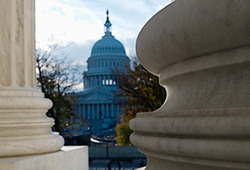 On March 11, 2021, the Consumer Financial Protection Bureau (CFPB) announced that it is rescinding its January 2020 policy statement (the 2020 Policy) providing guidance into its enforcement of the “abusiveness” standard under the Dodd-Frank Act. Section 103(a) of the Dodd-Frank Act authorizes the CFPB to bring enforcement actions against “covered persons” engaged in unfair, deceptive, and abusive acts and practices (UDAAP). “Abusive” conduct is defined as that which (1) materially interferes with a consumer’s ability to understand a term or condition of a product or service, or (2) takes unreasonable advantage of (i) a consumer’s lack of understanding of the material risks, costs, or conditions, (ii) a consumer’s inability to protect his or her interests in selecting or using a product or service, or (iii) a consumer’s reasonable reliance on a covered person to act in the interests of a consumer.
On March 11, 2021, the Consumer Financial Protection Bureau (CFPB) announced that it is rescinding its January 2020 policy statement (the 2020 Policy) providing guidance into its enforcement of the “abusiveness” standard under the Dodd-Frank Act. Section 103(a) of the Dodd-Frank Act authorizes the CFPB to bring enforcement actions against “covered persons” engaged in unfair, deceptive, and abusive acts and practices (UDAAP). “Abusive” conduct is defined as that which (1) materially interferes with a consumer’s ability to understand a term or condition of a product or service, or (2) takes unreasonable advantage of (i) a consumer’s lack of understanding of the material risks, costs, or conditions, (ii) a consumer’s inability to protect his or her interests in selecting or using a product or service, or (iii) a consumer’s reasonable reliance on a covered person to act in the interests of a consumer.
In its 2020 Policy, the CFPB did not meaningfully clarify exactly what constitutes “abusive” conduct. However, the 2020 Policy did set forth three changes to its exercise of enforcement authority. First, the CFPB resolved to focus its enforcement of the abusiveness standard on situations where the harms to consumers outweighed its benefits to consumers. Second, the CFPB signaled that it would avoid challenging conduct as abusive when that charge relied upon all or nearly all of the same facts the CFPB alleged to be unfair or deceptive under other sections of the Dodd-Frank Act. Third, the CFPB indicated that it did not intend to seek civil monetary penalties or disgorgement where the industry actor was making a good-faith effort to comply with the abusiveness standard.
In its announcement and accompanying rescission statement of policy, the CFPB rejected each of these modest moves to narrow its enforcement activities. The CFPB pointed out that the 2020 Policy itself included ambiguous standards, such as “good-faith effort,” that did not meaningfully restrict agency discretion or provide clarity to the industry. Instead, the CFPB resolved to “exercise the full scope of its supervisory and enforcement authority” rather than narrowing the definition of abusiveness promulgated by Congress. According to the CFPB, this would best protect both the rights of consumers who suffer the effects of abusive conduct regardless of the intentions of financial service providers, and the consumer financial marketplace because declining to penalize conduct could “skew” the market “to the detriment of market participants who do not act abusively.”
LenderLaw Watch previously wrote about the CFPB’s 2020 Policy, noting that it served as a hopeful first step to clarify a historically ambiguous standard. Ultimately, the 2020 Policy did not change much, especially given the secondary role that abusiveness claims typically play in CFPB enforcement actions. But by rescinding it, the CFPB has sent a message to the consumer financial services industry that the relatively industry-friendly years of the Trump administration are over and it intends to regulate through maximalist enforcement.
